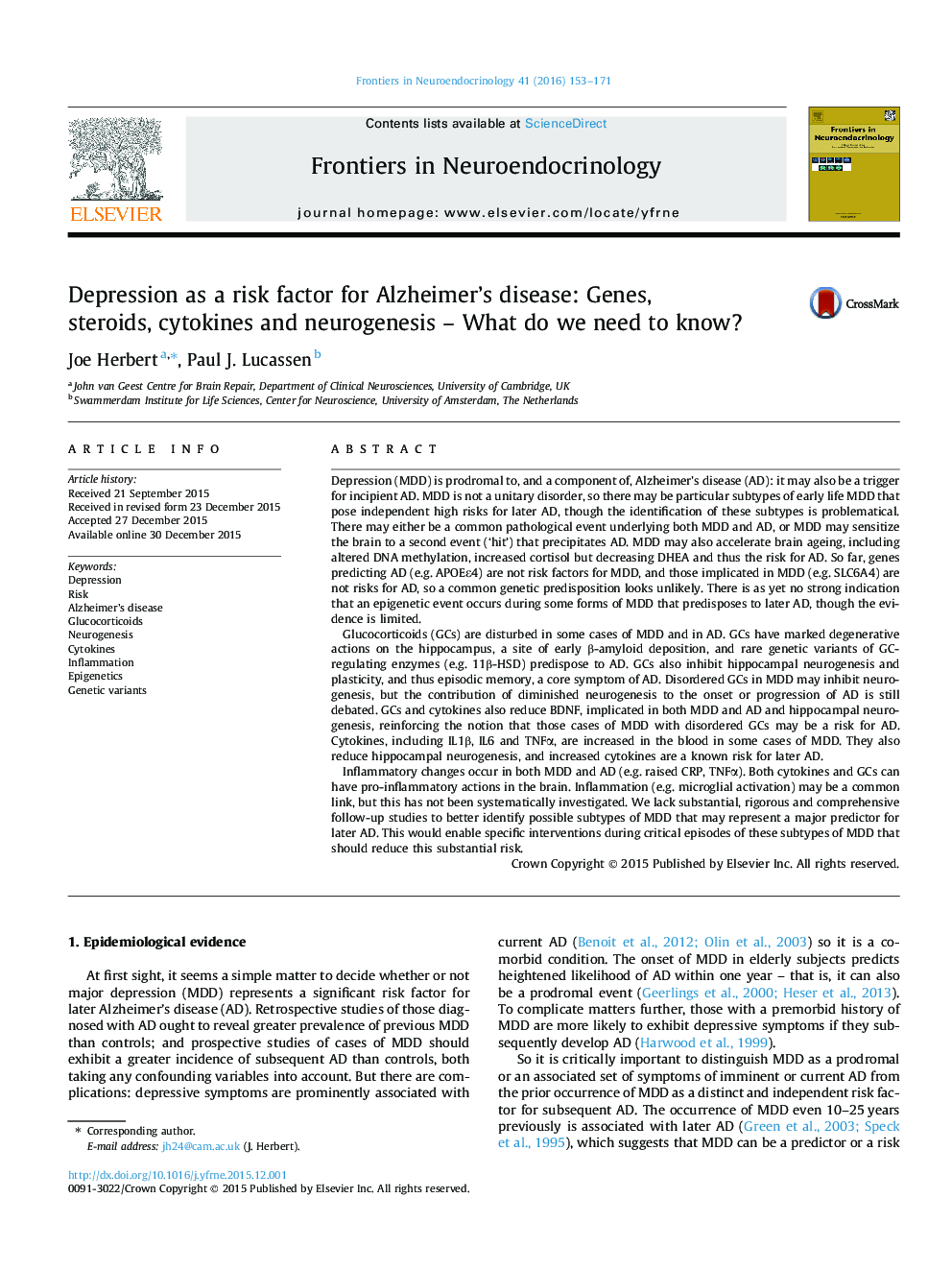| کد مقاله | کد نشریه | سال انتشار | مقاله انگلیسی | نسخه تمام متن |
|---|---|---|---|---|
| 2799288 | 1568822 | 2016 | 19 صفحه PDF | دانلود رایگان |
• A comprehensive review of the links between depression and Alzheimer’s disease.
• There may be subtypes of MDD that pose particular risks for later AD.
• Common genetic and epigenetic mechanisms are possible factors.
• Alterations in corticoids and cytokines occur in both conditions.
• Inflammation is a plausible link, but essential evidence in lacking.
Depression (MDD) is prodromal to, and a component of, Alzheimer’s disease (AD): it may also be a trigger for incipient AD. MDD is not a unitary disorder, so there may be particular subtypes of early life MDD that pose independent high risks for later AD, though the identification of these subtypes is problematical. There may either be a common pathological event underlying both MDD and AD, or MDD may sensitize the brain to a second event (‘hit’) that precipitates AD. MDD may also accelerate brain ageing, including altered DNA methylation, increased cortisol but decreasing DHEA and thus the risk for AD. So far, genes predicting AD (e.g. APOEε4) are not risk factors for MDD, and those implicated in MDD (e.g. SLC6A4) are not risks for AD, so a common genetic predisposition looks unlikely. There is as yet no strong indication that an epigenetic event occurs during some forms of MDD that predisposes to later AD, though the evidence is limited.Glucocorticoids (GCs) are disturbed in some cases of MDD and in AD. GCs have marked degenerative actions on the hippocampus, a site of early β-amyloid deposition, and rare genetic variants of GC-regulating enzymes (e.g. 11β-HSD) predispose to AD. GCs also inhibit hippocampal neurogenesis and plasticity, and thus episodic memory, a core symptom of AD. Disordered GCs in MDD may inhibit neurogenesis, but the contribution of diminished neurogenesis to the onset or progression of AD is still debated. GCs and cytokines also reduce BDNF, implicated in both MDD and AD and hippocampal neurogenesis, reinforcing the notion that those cases of MDD with disordered GCs may be a risk for AD. Cytokines, including IL1β, IL6 and TNFα, are increased in the blood in some cases of MDD. They also reduce hippocampal neurogenesis, and increased cytokines are a known risk for later AD.Inflammatory changes occur in both MDD and AD (e.g. raised CRP, TNFα). Both cytokines and GCs can have pro-inflammatory actions in the brain. Inflammation (e.g. microglial activation) may be a common link, but this has not been systematically investigated. We lack substantial, rigorous and comprehensive follow-up studies to better identify possible subtypes of MDD that may represent a major predictor for later AD. This would enable specific interventions during critical episodes of these subtypes of MDD that should reduce this substantial risk.
Journal: Frontiers in Neuroendocrinology - Volume 41, April 2016, Pages 153–171
